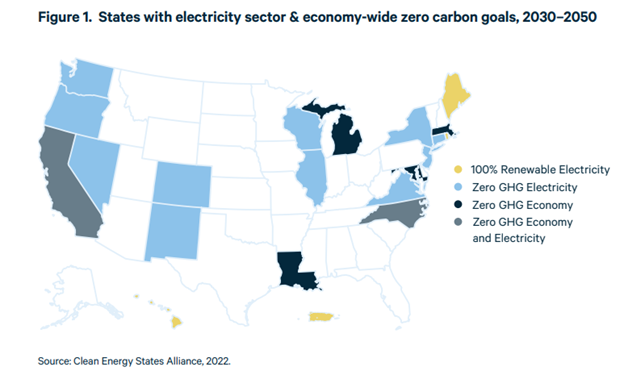State-Level Planning for Decarbonization
All over the United States, state governments are pursuing decarbonization on their own and in collaboration with other states. Much of this effort has focused on the electricity sector, where decarbonization will require investment in clean energy generation and transmission and a bigger focus on demand management. On April 5, 2022, the University of Virginia, the National Renewable Energy Laboratory, and Resources for the Future gathered experts to discuss the unique challenges that states face as they work toward electricity decarbonization.
For clean generation investment, barriers include:
- market structures that disfavor renewable energy resources
- backed-up interconnection lines
- local siting opposition
- policy uncertainty
- challenges arranging efficient procurement of clean power

Demand management is hampered by a lack of access to energy efficiency for low-income households and renters, inadequate metrics for energy efficiency, poor price incentives for consumers and utilities and transmission investors, and inequitable and confusing rate structures. Workshop participants suggested ways that states can engage with the Federal Energy Regulatory Commission and a variety of other entities to address these barriers. Participants also suggested many promising areas for future research that academics, state and federal agencies, national labs, and independent research organizations can address to help states move toward electricity decarbonization.
For the full report, download the file below.


